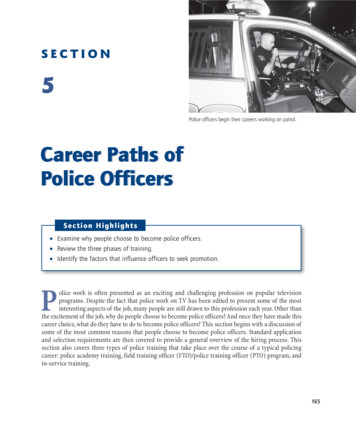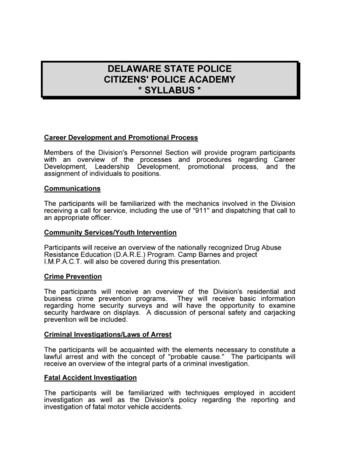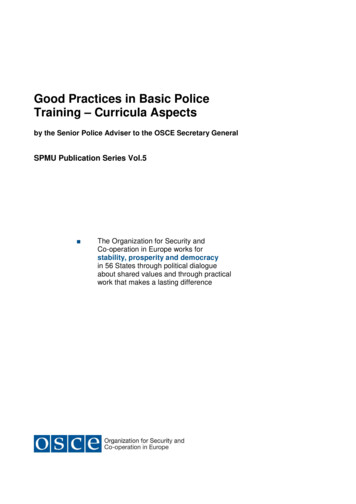
Transcription
Good Practices in Basic PoliceTraining – Curricula Aspectsby the Senior Police Adviser to the OSCE Secretary GeneralSPMU Publication Series Vol.5 The Organization for Security andCo-operation in Europe works forstability, prosperity and democracyin 56 States through political dialogueabout shared values and through practicalwork that makes a lasting difference
Vienna, May 2009 OSCE 2008All rights reserved. The contents of this publication may be freely used and copied for educational and othernon-commercial purposes, provided that any such reproduction be accompanied by an acknowledgement ofthe OSCE as the source.ISBN 978-92-9234-502-0Strategic Police Matters UnitOffice of the Secretary GeneralOSCE SecretariatWallnerstrasse 6, A-1010 Vienna, AustriaTel: 43-1 514 36 6942Fax: 43-1 514 36 6266E-mail: lis.osce.org2
Table of ContentPreface .5Acknowledgements .6Executive Summary .8Glossary.11I. Values and Ethics .12Human Rights . 12Democratic Policing . 13Police-Public Partnership . 13Cultural Diversity . 14Gender Issues. 15Police Ethics and Codes of Conduct . 16Corruption. 17II. Values and Ethics in Action .18Civil Disturbance Management . 18Use of Force and Firearms . 18Arrest and Detention . 19Juveniles and Children . 20Hate Crime . 21Victimology . 22Interviewing Victims . 22Trafficking in Human Beings (THB) and Crimes of Exploitation. 24Domestic Violence. 25III. Policing Skills .27III.1Baseline Requirements.27Report Writing . 27Information and Computer Technology (ICT). 27Communication. 28Languages. 28Radio . 29Police Vehicle Operation . 29Stress Management. 29Physical Fitness and Self-Defence . 30Defensive Tactics . 30Survival Skills . 31Firearms. 31First Aid and Cardiopulmonary Resuscitation (CPR). 32III.2Patrolling .333
Patrol Procedures. 33Traffic Law and Management . 34Searches. 35Personal Identity and Forged Documents . 37Drugs and Alcohol . 37Responding to Major Incidents. 38III.3Basic Investigation and Procedure .40Criminal Law . 40Crimes Classification . 40Criminal Investigation and Procedure . 40Managing the Crime Scene . 42Gathering of Criminal Information . 42Forensics . 43Interviewing and Taking Statements . 43Note Taking . 44III.4 Field Training .46Field Training . 46Training for Field Training Officers . 46Conclusion .484
PrefaceSince its establishment in 2002, the OSCE’s Strategic Police Matters Unit (SPMU) has provided assistanceto national police services of OSCE participating States, particularly those of the countries of South-easternEurope, Southern Caucasus and Central Asia.Police training, especially basic training, is a cornerstone of this assistance for it ensures that recruits gaintheir initial police knowledge and skills in light of best international practice.With this in mind, the SPMU created this guide, Good Practices in Basic Police Training – Curricula Aspects,which integrates best practices into a basic police training curriculum. The guide lays out a set of minimumstandards, providing a common platform for improving national basic police training models. As such, it is apractical follow-up to the principles and recommendations provided in the Guidebook on Democratic Policingby the Senior Police Adviser to the OSCE Secretary General.This guide aims to enhance the general culture of policing in OSCE participating States, making policingmodels more democratic and public oriented to ensure greater security and more effective crime prevention.Kevin CartySenior Police Adviser to the OSCE Secretary General5
AcknowledgementsThe OSCE Senior Police Adviser, Mr. Kevin Carty, developed this guide together with police training expertsfrom OSCE participating States and partner organizations in order to distil best practices in a basic policetraining curriculum in democratic societies.This guide draws on information from law enforcement departments of OSCE participating States, nationalpolice training institutions and international research, including that carried out under the authority of theEuropean Police College; an analysis of European systems of police education and training conducted byProf. Milan Pagon and his research team in 17 European countries (1996); and several documents from theUS Commission on Accreditation for Law Enforcement Agencies.The Senior Police Adviser appointed Viacheslav Vorobiev, Police Affairs Officer, Training Adviser, at theOSCE Strategic Police Matters Unit as the principal drafter. He is also deeply grateful for the invaluablecontributions of the following experts and researchers:Dmitri Alechkevitch, Political Adviser at the Office of the OSCE HighCommissioner on National Minorities (HCNM);Artashes Andreasyan, Head of the Centre for Induction Police Training,Armenia;Antonio Arrabal Villalobos, Head of Service, Ministry of the Interior, Police International Co-operation, Spain;Bernard Barry, Inspector of Garda Siochana (Irish National Police);Guillaume Le Blond, Adviser at the French Permanent Representation to the OSCE;József Boda, Head of International Training Centre in Budapest, Hungary;Tamás Borbás, Teacher, Adyliget Law Enforcement Training School,Hungary;Luc Chalon, Director of Training Centre, National Police TrainingDepartment, France;Evgeny Cherenkov, Programme Manager for the OSCE Police Assistance Programme to Kyrgyzstan;Paulo Costa, Manager, Police Education & Development Programme, OSCE Mission to Serbia;Tim Del Vecchio, Police Affairs Officer, SPMU, OSCE Secretariat;Plamena Dimitrova, Head of Professional Training Sector, National Police Service, Bulgaria;Dan Pavel Doghi, Officer on Roma and Sinti Issues at the ODIHR;Friedel Durben, Deputy Head of Basic and Advanced Police Training,Ministry of the Interior and for Sports, Rheinland-Pfalz, Germany;Hajnalka Gosi, Head of Hungarian Secretariat of the International LawEnforcement Academy, Ministry of Justice and Law Enforcement;Miroslav Gospodinov, Police Trainer, OSCE Mission to Montenegro;Vera Gracheva, Senior Adviser at the OSCE Secretariat Office of the Special Representative / Co-ordinatorfor Combating Trafficking in HumanBeings;Monica Gutierrez, Adviser on Gender Issues, OSCE Secretariat;Frank Harris, Police Capacity Building Expert, OSCE Mission in Kosovo;Raymond Hirons, Chief of Police Training, OSCE Spillover Monitor Mission to Skopje;Carel Hofstra, Politico-Military Programme Manager, OSCE Office in Yerevan;Andras Hugyik, Police Expert, OSCE Office in Baku;Fatih Inalkac, Police expert, Turkish National Police;Zeljko Karas, Lecturer, Police College, Croatia;Anette Keloneva, Police Affairs Officer, SPMU OSCE Secretariat;Robert Kerer, Curriculum Development Adviser at the Police Education &Development Department, OSCE Mission to Serbia;Madlen Khelashvili, Deputy Head of Police Academy of Ministry of Internal Affairs, Georgia;Andre Konze, Programme Manager Police & Human Rights, Council ofEurope;Marco Kubny, Police Adviser, OSCE Mission to Georgia;6
Aslan Kulbaev, Deputy Head of Police Academy, Kyrgyzstan;Branko Lobnikar, Assistant Professor, Faculty of Criminal Justice andSecurity, Slovenia;Douglass Madden, Deputy Director at the Department for Security and Public Safety; OSCE Mission in Kosovo;Alexander Malyshau, Senior Information Management Assistant, SPMU, OSCE Secretariat;Manuel Marion, Deputy Head, SPMU, OSCE Secretariat;Mario Marmo, Senior Police Officer, State Police, Italy;Andrzej Mirga, Senior Adviser on Roma and Sinti Issues at the ODIHR;Zsolt Molnár, Senior Law Adviser at the Ministry of Justice and LawEnforcement, Budapest, Hungary;Susanna Naltakyan, Police Assistance Programme Coordinator, OSCE Office in Yerevan;Aleksandar Panayotov, Specialist in the Organization of Educational and Scientific Activity, Academy ofMinistry of the Interior, Bulgaria;Danijela Petković, Lawyer, Police School, Ministry of the Interior,Croatia;Andrej Petrenko, Chief of the Educational-Methodical Centre, Dnepropetrovsk State University of InternalAffairs, Ukraine;Luciano Poveromo, Officer of Guardia di Finanza, Italy;Vladimir Ragozin, Curriculum Development Officer at the Law Enforcement Department of the OSCE Spillover Monitor Mission to Skopje;Andrej Rohal, Deputy Director, Secondary Police School of the Ministry of the Interior, Czech Republic;Fatima Silva, Inspector of Portuguese Aliens and Border Service, Criminal Investigation Unit, Portugal;Asel Stamova, Senior Programme Assistant, OSCE Centre in Bishkek, Police Reform Programme to theKyrgyz Republic, Kyrgyzstan;Thorsten Stodiek, Police Affairs Officer, SPMU, OSCE Secretariat;Tanja Tripovic, Police Academy, Danilivgrad, Deputy Director, Montenegro;Gianluca Trombetti, Italian Carabinieri Corps, Carabinieri HeadquartersTraining Office, Italy;Robert-Jan Uhl, Human Rights Officer at the ODIHR;Viacheslav Vorobiev, Police Affairs Officer, SPMU, OSCE Secretariat;Murat Yildiz, Political Affairs Officer, SPMU, OSCE Secretariat.7
Executive SummaryThe Good Practices in Basic Police Training – Curricula Aspects guide provides police educators with a corecurriculum for basic police training for recruits aiming to become uniformed police personnel in democraticsocieties.A companion piece to the Guidebook on Democratic Policing, it details the topics uniformed police personnelmust master to enable them to serve effectively in the field, ensuring public security and order whilerespecting the law and human rights.Uniformed police are predominantly responsible for maintaining order and safety in public places and atpublic events. In particular, the competencies of the uniformed police might include: To maintain law and order in public areas; To act as a traffic authority and control traffic and transport; To provide the best possible policing service to the local community to ensure people’s safety and toprotect their life and property, taking into consideration the different needs of different groups (for example, ethnicity, language, sex and age); To co-operate with local society to prevent, detect and suppress crimes; To ensure the first response to the crime scene as soon as a crime is reported to the police; to securethe crime scene before police investigators and technical experts arrive; To act according to the law, recognize unlawful acts, detect offenders and properly use police powers; To exercise authority and available powers to resolve cases of minor offences; To contribute to the prevention and investigation of minor offences; To exercise authority powers in cases of production, sale and use of certain devices and materials thatpose a threat to public security; To aid and assist in emergencies of all kinds and in the event of a major threat; To provide protection against acts that imminently endanger or harm the life or bodily integrity of personsor the security of property; To provide information and help to those in need of such assistance.Drawn from best practices across the OSCE region, the Basic Police Training – Curricula Aspects guideoutlines the core components of a basic police training programme, to be used to compare with nationalbasic police training models and improve them. It employs a modular approach, with each learningcomponent laid out in easy-to-view blocks. The guide elaborates on the goal, objective and points to beaddressed within each of the topics and, if appropriate, provides references to relevant sources. Thesereferences are not exhaustive, but focus on key organizations or documents.The guide recognizes that uniformed police personnel’s day-to-day decision-making and actions are basedon underlying values, sound judgment and a set of learned skills and knowledge.The guide is therefore divided into three sections. The first examines the values and ethics at the heart ofdemocratic policing. The second explores how police personnel might exercise judgment in different practicalsettings based on these values and ethics. The third focuses on policing skills and encompasses baselinerequirements, patrolling, basic investigation and procedure and field training.I – Values and EthicsUniformed police members are given the responsibility by a democratic government to protect the rights ofcitizens and enforce the law of the state. Their daily policing should be based on democratic values.Those values ensure fair and impartial treatment of all individuals, sensitivity to racial, ethnic, sexual, genderand religious factors, with an awareness of cultural diversity and discrimination. They reflect a respect forfundamental human rights, integrity and police codes of conduct.II – Values and Ethics in ActionThe police are the most visible manifestation of government authority responsible for public security, withfront-line personnel – such as the patrol service, traffic, community or protection police service – in day-today contact with citizens. The skill with which they perform their duties will determine the public perception –positive or negative – of the national police service.8
Their on-the-job decision-making and actions should reflect sound judgment guided by the values and ethicsalready discussed. This section explores how ethical and value-based decision-making should look inpractice in different, and often sensitive, settings, such as in working with juveniles, victims or in cases of civildisturbance.III – Policing SkillsBasic police training must include practical skills. Developed professional skills equip uniformed policemembers to meet and respond more automatically to typical challenges and situations by consistently usingproven techniques. These skills also prepare them to follow a reasonable course of action in emergenciesand under non-standard conditions.9
III.1 Baseline RequirementsUniformed police must master an array of baseline skills in order to perform their duties. These include theuse of equipment, communication and self-management skills and the proper use of firearms.III.2 PatrollingFront-line police personnel need patrolling skills to perform their daily jobs. These include in-depthknowledge of general procedures, traffic law, how to conduct searches as well as what to do as a firstresponder to a major incident.III.3 Basic Investigation and ProcedureUniformed police personnel require solid knowledge of state and local police-related laws and applicablepolicies. They must have a command of the basics of criminal investigation and procedure as well as thegathering of evidence.III.4 Field TrainingField training is an integral part of basic police training and one of its key components. Field training allowstrainees to apply the knowledge and skills learned in the classroom to real police work.10
GlossaryClarification of some terms used in this document (not intended as definitions):Basic Police TrainingThe very first type of general police education or training provided to newly recruited police members ofcommissioned or non-commissioned categories upon joining the police service, aimed at teaching them basic police competencies.It does not include any separate special courses or training of a basic nature that are focused on providingspecific knowledge and/or skills for law enforcement personnel in a specific area of policing (for example, inthe sphere of drugs, trafficking in human beings or management).Basic Police Training InstitutionAny law enforcement educational or training establishment (for example, police academy, public safetyacademy, police college, police school or police training centre) that provides basic police training.Certificate/CertificationA document issued to a person completing, as a rule, a short course of study not leading to a diploma.CourseA training unit on a particular topic and of any duration, using learning/teaching activities, such as a specifiednumber of lessons, lectures, practical exercises, study visits, discussions, group work and assignments to bestudied.CurriculumInterrelated subjects/disciplines combination that provide trainees with the necessary knowledge, skills andexperience to perform their duties or meet their post requirements.DiplomaA document issued by a law enforcement educational or training establishment testifying that the recipienthas earned a degree or has successfully completed a particular, substantial programme of study.Police-Public PartnershipA philosophy and organizational strategy that promotes a partnership-based collaborative approach betweenthe police and the community to more effectively and efficiently identify and solve problems, reduce crimeand the fear of crime, and improve the overall quality of life in the community and public satisfaction with thepolice service.Police ServiceA major police agency operating within a specific jurisdiction charged with maintaining public order andsafety in the jurisdiction and tracking down offenders and criminals. Depending on the national law enforcement framework, it may be associated with more specific structures, including, but not limited to, militarypolice, border police, etc.PracticumSupervised practical application of previously studied theoryProgrammeA training, or educational, course, or a combination of both, specifically aimed at delivering special knowledge and skills to participants, thus having a significant positive impact on how they perform their daily duties.Uniformed PoliceThe structural part of the police service predominantly responsible for maintaining order and safety in publicplaces and at public events. They are in close and visible day-to-day contact with people and so, as a rule,wear uniforms to perform their normal duties. In many countries, the uniformed police include members ofthe patrolling police, traffic police and community police.11
I. Values and EthicsAs agents of the state, uniformed police members are given the responsibility by a democratic government toprotect the rights of citizens and enforce the law of the state. Their daily on-the-job decision-making shouldbe based on democratic values, adherence to the rule of law and respect for human rights.Those values ensure fair and impartial treatment of all individuals, sensitivity to racial, ethnic, sexual, genderand religious factors, with awareness of cultural diversity and discrimination. They reflect a respect forfundamental human rights, integrity and police codes of conduct.Human RightsHuman rights are rights that derive from the inherent dignity and worth of the human person; they areuniversal, inalienable and equal.The principle of respect for human dignity is the foundation of any national or international text on theprotection of fundamental rights. Human dignity is inviolable; there can be no exception, nor can any limit beimposed, even where law and order is concerned. The possession of human dignity carries certainimmutable moral obligations. These concern the treatment of all other human beings, the duty to preservelife, liberty and the security of persons. To preserve peace and stability in their respective states and to gaintrust and support from the citizens, the police must respect, protect and promote human rights.Within a legal framework, human rights are enshrined in international human rights instruments. The mostwell known are the Universal Declaration of Human Rights, the International Covenant on Economic, Socialand Cultural Rights, the International Covenant on Civil and Political Rights, the European Convention for theProtection of Human Rights and Fundamental Freedoms and instruments dealing with specific aspects ofhuman rights protection.Police behaviour must be legal, necessary and proportionate to best protect the rights and freedoms ofcitizens. Citizens in a democratic society must be treated fairly and protected by the police, and in the caseof criminal acts, treated by the police as suspects, not as criminals.One role of the police is to protect human rights by maintaining social order so that all human rights of everycategory can be enjoyed. In other words, whereas the protection of human rights is a police function, therequirement to respect human rights affects the ways in which the police fulfil all of their functions.Learning Goal:To familiarize trainees with the legal framework for protecting human rights in law enforcement. To discussand raise awareness about human dignity, and how this issue affects daily conduct.Learning Objectives:The trainee will learn about human rights instruments (international, regional and state instruments and nontreaty documents), the principles of non-discrimination, and the groups requiring special protection or treatment. Trainees will learn to identify situations in which the uniformed police may legally restrict an individual’s right to liberty. Trainees will also learn the role of the police regarding human rights and be able to identify the fundamental human rights principles involved in police investigations. Finally, trainees will becomeacquainted with the laws protecting human dignity.Points to be addressed:How a democratic society works; categories of human rights – civil and political; economic and social; environmental; cultural and developmental rights; types of rights – to life; freedom from torture and ill treatment;liberty; freedom of thought, conscience, religion and peaceful assembly; to a fair trial; to work, education andcommunity participation; the presumption of innocence; the rights of the arrested person, minorities, womenand children; experience with authority figures, protecting society’s outcasts; respect for privacy of information.Sources:– Universal Declaration of Human Rights– International Covenant on Economic, Social and Cultural Rights12
––International Covenant on Civil and Political RightsCouncil of Europe, Convention for the Protection of Human Rights and Fundamental FreedomsDemocratic PolicingIn addition to keeping the peace and protecting public safety for society at large, police in a democraticsociety also help guarantee individual and collective rights and freedoms, protect people and their propertyand defend the democratic institutions on which the state’s legitimacy is based. Police personnel enhancethe legitimacy of the state if they demonstrate in their daily work that they are responsive to public needs andexpectations and use the authority of the state in the people’s interests. The fair and impartial treatment bythe police toward all wins respect, support and co-operation and enables the police to gain the trust andconfidence of the public.Democratic policing requires that police be and consider themselves to be accountable to citizens, theirrepresentatives, the state and the law. Therefore, police activities, ranging from the behaviour of individualpolice officers to police strategies and policies, human resource and budget management, must betransparent and open to scrutiny by a variety of oversight institutions.Learning Goal:To familiarize trainees with the standards of democra
Enforcement Academy, Ministry of Justice and Law Enforcement; Miroslav Gospodinov, Police Trainer, OSCE Mission to Montenegro; Vera Gracheva, Senior Adviser at the OSCE Secretariat Office of the Special Representative / Co-ordinator for Combating Trafficking in Human Beings; Monica Gutierrez, Adviser on Gender Issues, OSCE Secretariat;
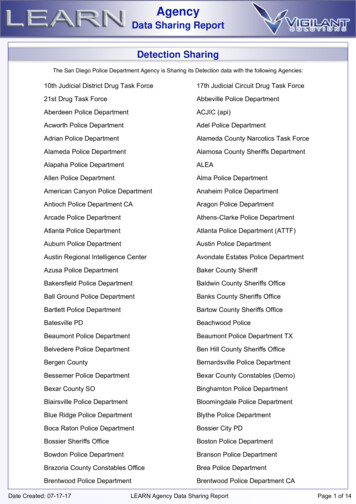
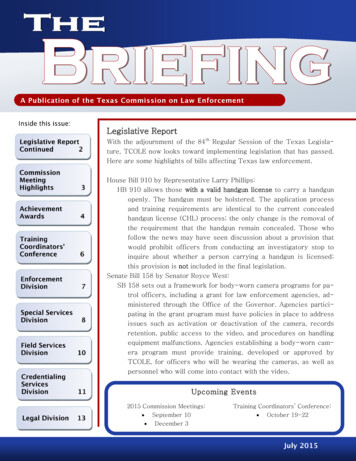
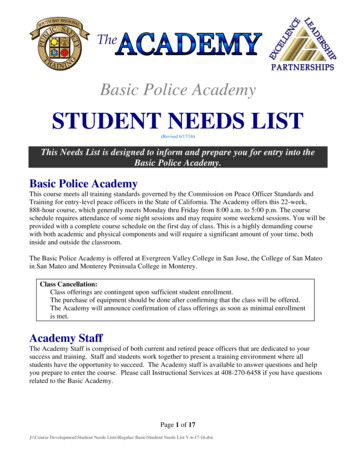
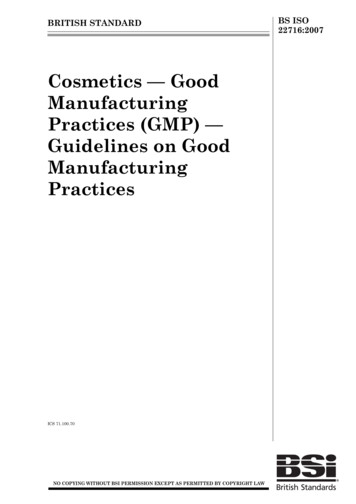

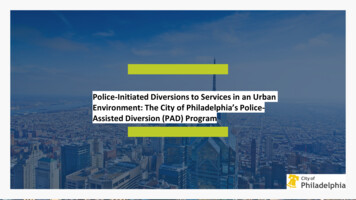
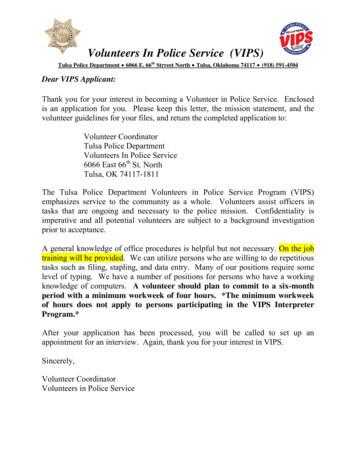
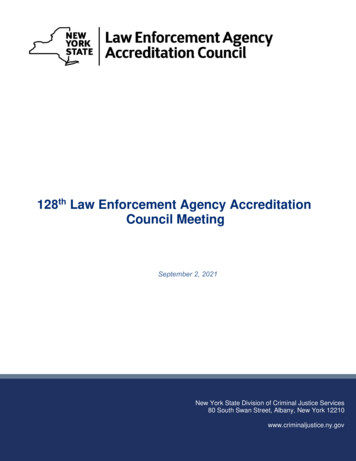
![Vohne Liche Kennels 6SHFLDOL]LQJLQ6WUR QJ6RFLDO3ROLFH'RJVµ](/img/38/reference-listing.jpg)
